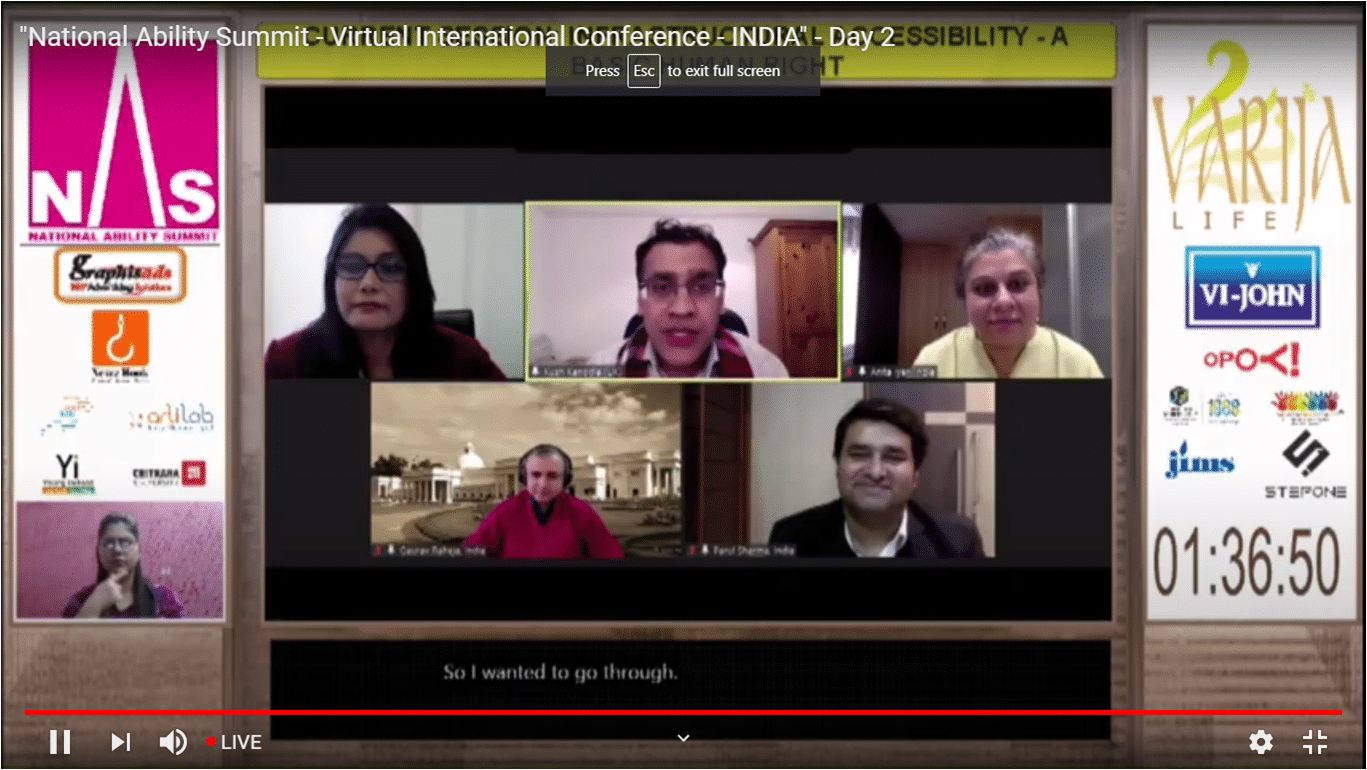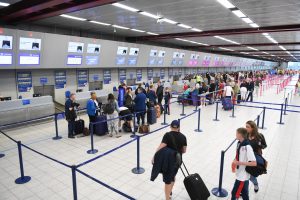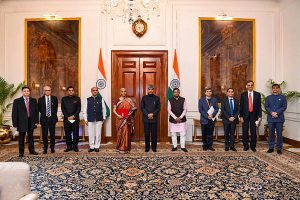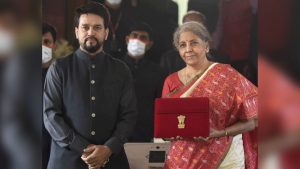Infrastructural accessibility was the focus of a discussion on the second day of National Ability Summit on Thursday, where panelists comprising entrepreneurs and disability rights activists shared their views on this basic human right.
The session – ‘Infrastructural Accessibility- A Basic Human Right’ – touched upon the pressing issues such as inclusive work spaces, government initiative to promote accessibility, gender aspect and reducing barriers.
Gaurav Raheja, Professor of Architecture, IIT Roorkee spoke about the Accessible India Campaign that measures the extent to which buildings
are accessible to disabled people. He said that the campaign needs to bring accessibility
into the ministerial circle and from there, to the civic body circle.
“I look forward to the day when International Day of Persons
with Disability is transformed to International Day of Accessibility”, he
added.
Anita Iyer – Founder & Managing Trustee – Ekansh Trust,
Pune, India said that universal design and accessibility should be a 360
degree approach. People who are authorising building need to be made aware of
what accessibility means, she said.
Also Read | Affordable assistive technologies for differently-abled is need of the hour: Tech professionals at NAS
“Accessibility impacts the dignity of a person with disability”,
she added.
Kush Kanodia, Chief Disability Officer, The Kaleidoscope
Group of companies spoke of an integrated approach to accessibility. “If you don’t provide free disabled parking, you are not
fully accessible to people”, he said.
Public sector should make workplace assessments for disabled
people, incorporating universal designs and reasonable adjustments to promote inclusion.
Parul Sharma, Country Program Manager, World Enabled (India)
said that the Indian government intends to safeguard the rights of disabled people,
but financial incentives are lacking.
Iyer laid emphasis on how inclusivity has to be taught at
children’s level. All of us know at least
one person with disability, so we shouldn’t shy away from having conversations
about it, she said.
Highlighting the issue of gender aspect of accessibility,
Raheja said that “toileting infrastructure” needs to be developed. He addressed
the problem in 3 tiers – first, providing access to information on
accessibility perhaps with the use of “toilet maps”, second, building
infrastructure that is inclusive of women and children; and third, shedding
some light on infrastructure in rural India.
“India is 70% rural. Rural is the promise of the food that
we have”, he said.
Kanodia threw some light on the medical model and social model.
“What is it that disables a person? Medically, it is
impairment. Socially, it is the environment and attitude of people”, he said.
Sharma shared his opinions on the shortcomings of the Indian
government to provide a more accessible space. He said that the problem appears
when they do not include the disabled people in the decision-making process.
Moreover, fewer budgets are allocated to make premises accessible
and for other inclusion efforts, he said. He said that the budget of Ministry
of Social Justice and Empowerment is less than the budget for building a
highway.
Meanwhile, the ministry has undertaken flagship initiative to
provide Unique Disability ID cards with vital information related to their age,
geographical location and qualifications. Sharma believes that all ministries
need to work hand-in-hand to make this a success.
Mega campaigns are needed to sensitize staff personnel,
engineers and planners on making work spaces more accessible.
Raheja spoke of creating a mind-body-soul model for
developing infrastructure – mind that provides the rationale behind inclusion,
body that justifies the technical aspects f infrastructure and soul that
conveys the actual experience of the user.
Sharing his experience of the ‘No Wheelchair Tax’ Campaign, Kanodia
quoted Gandhi – ‘First, they ignore you, then they laugh at you, then they fight you and then you win’- a quote that
kept him going during his struggle.
The session ended on a positive
note as Kanodia shared Alan Turing’s famous words — Sometimes it is the people no one imagines anything of who do the
things that no one can imagine.







